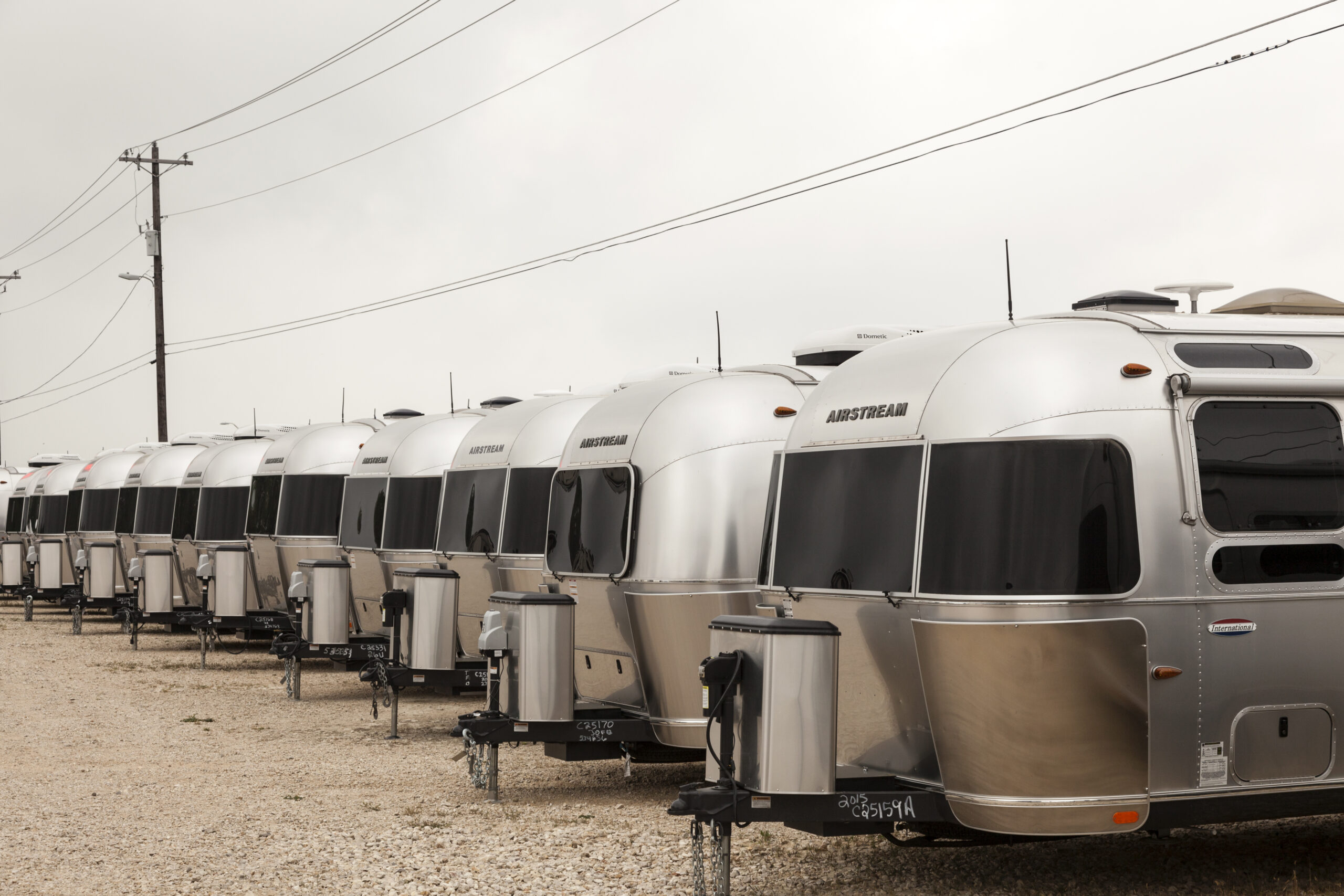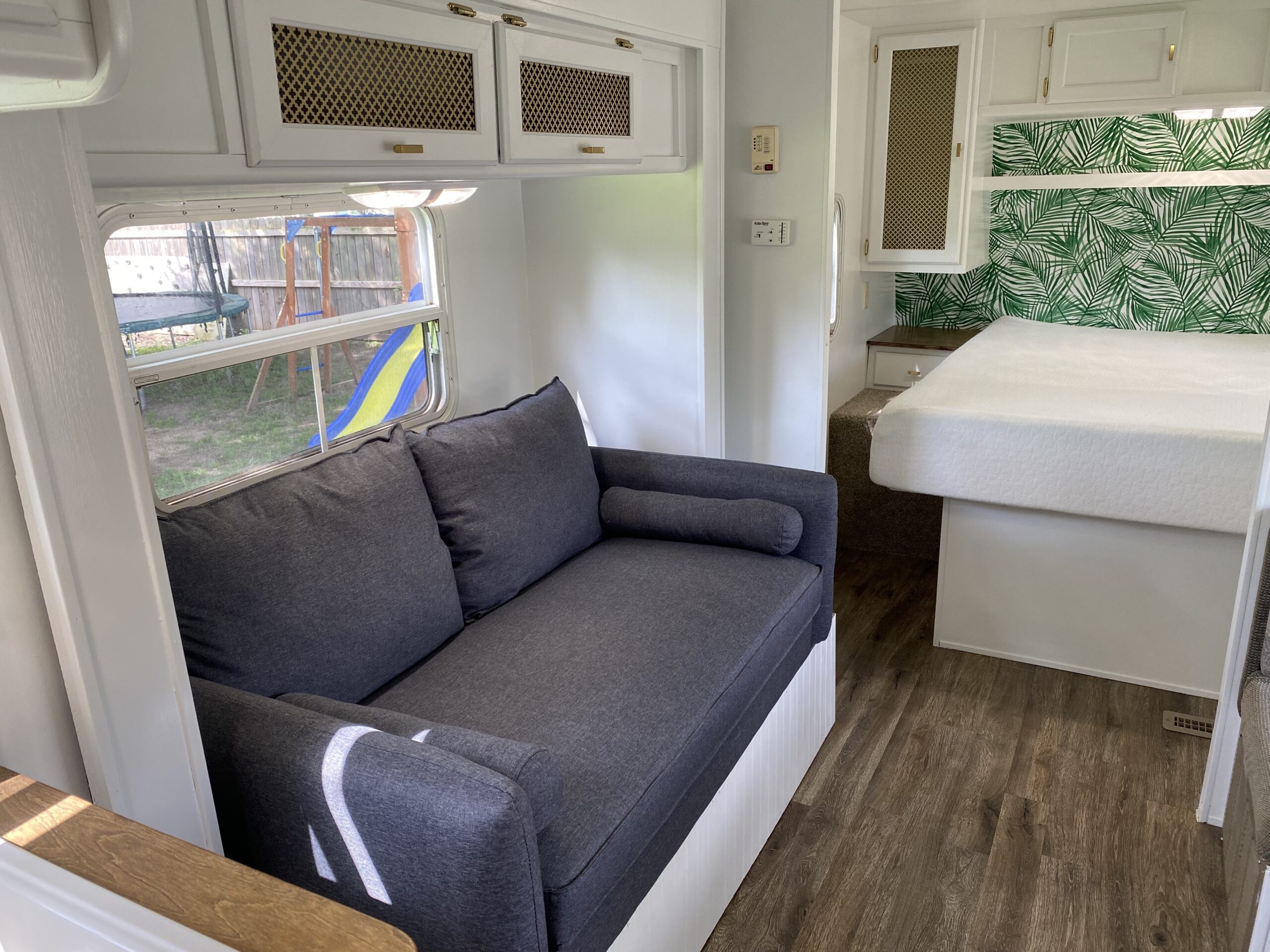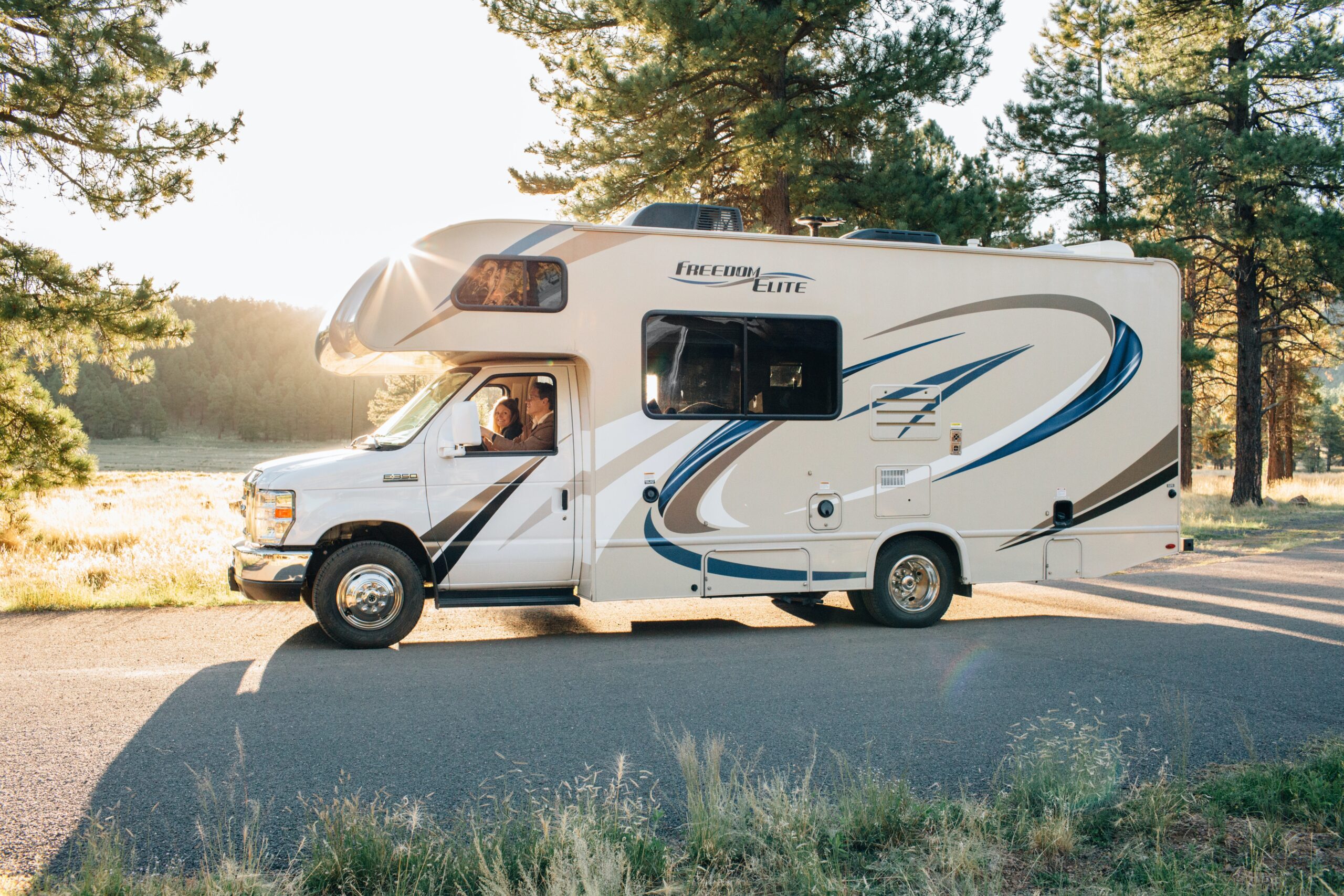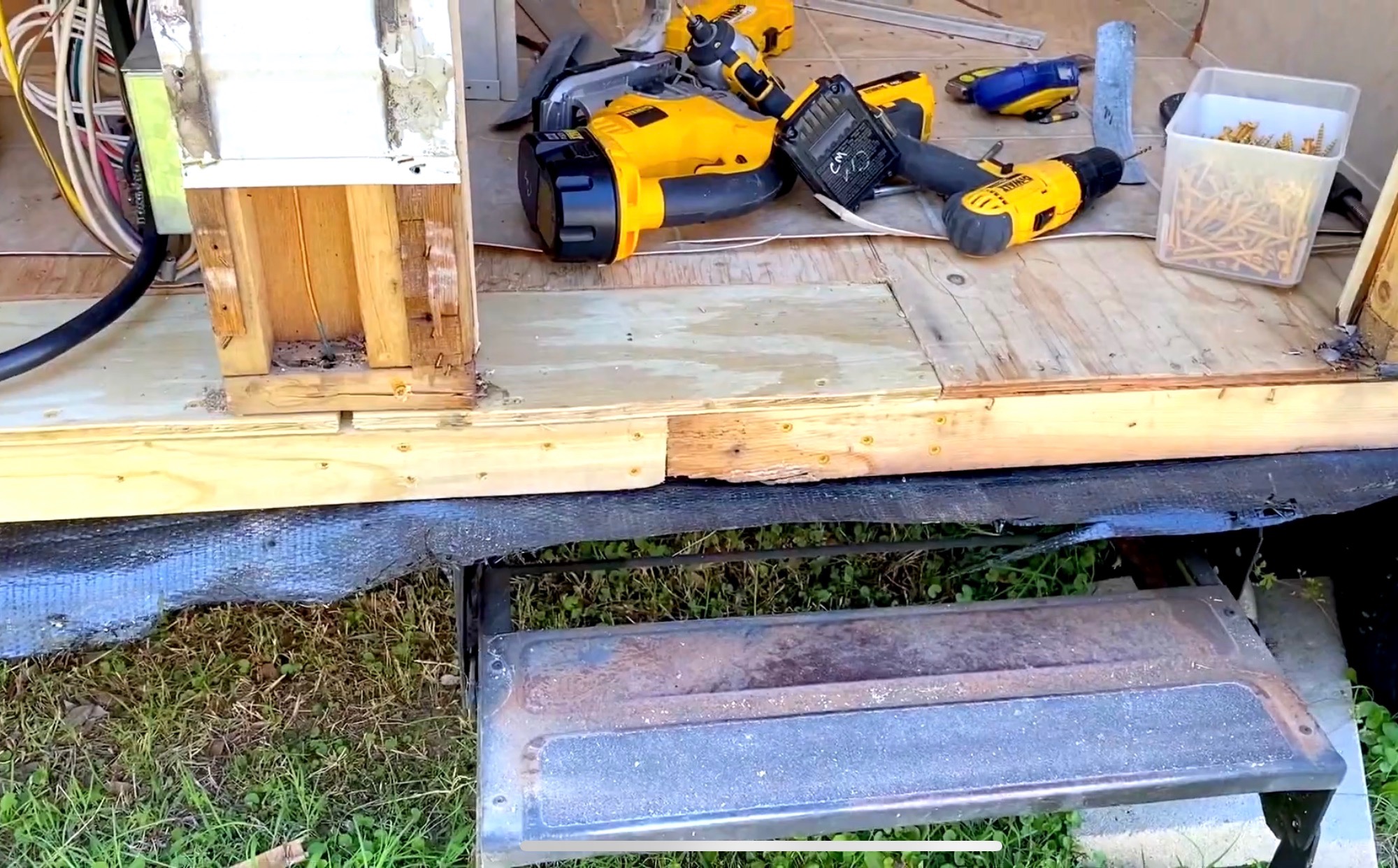Purchasing an RV can be an exciting and life-changing experience, providing the opportunity for countless adventures on the open road. However, just like any significant investment, there are potential pitfalls and mistakes that can be made during the process. By being aware of the common errors first-time buyers might encounter, one can navigate the RV buying experience with confidence and ultimately find the perfect vehicle to suit their needs.
A key issue to consider when looking for an RV is the depreciation in value that can occur as soon as the vehicle leaves the dealership. For this reason, buying a used RV is often a smarter decision, as the first owner has already absorbed the initial depreciation hit. Additionally, it’s essential to thoroughly inspect the vehicle to identify any potential problems, such as structural damage or a cracked windshield, which can lead to costly repairs down the line.
Understanding RV Types
Class A Motorhome
Class A motorhomes are the largest and most luxurious RVs on the market. They’re essentially a home on wheels, offering high-end amenities such as spacious living areas, full kitchens, and private bedrooms. Class A motorhomes can be diesel or gas-powered and offer ample storage space for families or retirees looking to travel long distances. These RVs are typically more expensive to purchase, maintain, and insure, but they offer a very comfortable lifestyle for those who can afford them.
Class C Motorhome
Class C motorhomes are mid-sized recreational vehicles that are built on a truck or van chassis. They offer a more compact living space compared to Class A motorhomes but still provide many of the same amenities, such as a kitchen, bathroom, and sleeping area. Class C motorhomes are usually easier to drive and park than their larger counterparts, making them a popular choice for families and couples who don’t need as much space. They can be more fuel-efficient than Class A motorhomes, but maintenance and insurance costs are still important factors to consider.
Travel Trailer
Travel trailers are non-motorized RVs that must be towed by a separate vehicle, like a truck or SUV. They come in a wide variety of sizes and styles, ranging from small travel trailers like the Airstream to larger models such as those made by Jayco, Winnebago, Forest River, or Keystone. Travel trailers are a versatile and affordable option, allowing you to disconnect your towing vehicle for daily use while keeping the RV parked when not traveling. However, towing and maneuvering a travel trailer can be challenging, so make sure to factor in the towing vehicle’s capabilities when choosing this type of RV.
Fifth Wheel
Fifth-wheel travel trailers are similar to traditional travel trailers but have a special hitch connection that attaches to the bed of a pickup truck. This design offers a more stable and secure towing experience compared to regular travel trailers. Fifth-wheel RVs often feature spacious living areas and luxury amenities like full kitchens, private bedrooms, and ample storage space. They can be expensive to purchase and maintain, but the investment may be worth it for those seeking a luxurious travel experience.
Pop-Up Camper
Pop-up campers are lightweight, foldable camping trailers that can be towed by most cars or SUVs. When not in use, they can be compactly stored, making them ideal for those with limited storage space. Once at your destination, pop-up campers can be easily set up, providing basic accommodations like sleeping areas and sometimes a small kitchenette. They are an affordable option for families or individuals looking for a more minimalist camping experience, but they do require more setup and teardown time compared to other RV types.
Truck Camper
Truck campers are small, portable living quarters that can be mounted onto the bed of a pickup truck. They are the most compact type of RV and are ideal for those who value a minimalist lifestyle and easy maneuverability. Truck campers typically offer basic amenities like a bed, a small kitchenette, and storage space but may lack some of the features found in larger RVs. They are also less expensive to purchase and maintain, making them a popular choice for weekend adventurers or retirees who enjoy exploring remote destinations.
New vs. Used RVs
When considering buying an RV, one of the primary decisions you’ll face is whether to purchase a new or used RV. Both options have their pros and cons, and understanding these can help you make a more informed decision.
Buying a new RV can be appealing, as it offers the latest features and amenities, ensuring that everything is in pristine condition. Moreover, new RVs come with a manufacturer’s warranty, giving you peace of mind if any issues arise. However, this option can also be more expensive, both in terms of the initial cost and potential depreciation. New RVs tend to lose a significant portion of their value within the first few years of ownership, making them a less wise investment for some.
On the other hand, buying a used RV can be a more cost-effective choice. Used RVs are typically offered at lower prices, and the previous owner has already absorbed the brunt of the depreciation. This can enable buyers to save money for other purposes, such as traveling or customizing their RV. Additionally, a used RV may have already had any initial “bugs” or problems addressed under warranty, so you may experience fewer issues during your ownership.
However, there are some drawbacks to purchasing a used RV. For example, used RVs may not have the latest features or designs, and they often lack a warranty. Buying from a private seller can also be risky, as you may not have the same level of protection you would get if buying through a dealership. It’s essential to carefully inspect any used RV and have any potential concerns addressed before committing to the purchase.
For beginners in the RV world, the choice between a new or used RV can be overwhelming. It’s important to consider your budget, lifestyle, and preferences when making this decision. By understanding the advantages and disadvantages of both new and used RVs, you can take a step toward finding the perfect RV for your needs.
Overall, whether you decide to buy a new or used RV, it’s essential to approach the process with care, thoroughly research the options available, research RV prices, and take your time to make the best decision for you and your family.
Financial Considerations
Budgeting for Your RV
When considering an RV purchase, it’s essential to create a realistic budget and account for all the costs involved. Remember that the sticker price is not the only expense. You should also consider the costs of insurance, storage, maintenance, and potential additional fees like taxes. To avoid overspending, calculate your budget before beginning your search. Keep in mind that there are a variety of price ranges available when it comes to RVs, from economy to luxury models.
- Initial investment: Determine how much you’re willing to spend on your RV purchase. Ensure it’s within your savings or financial capabilities.
- Monthly expenses: Account for ongoing expenses like loan payments, insurance premiums, and potential storage fees.
- Maintenance and upkeep: Factor in the cost of routine maintenance such as oil changes, tire rotations, and any necessary repairs.
Securing Financing
Securing financing plays a significant role in the RV buying process. Before applying for an RV loan, review your credit score and financial history. Lenders use this information to determine your eligibility and interest rates. Shop around for the best loan terms and remember that a better credit score usually results in lower interest rates.
Taxes and Insurance
When purchasing an RV, don’t forget to factor in sales tax and the cost of insurance. Sales taxes vary by state, and insurance premiums depend on factors like the value and type of RV, as well as any additional coverage you may need. Some options include:
- Liability insurance: Covers damage to other vehicles and property and any injuries to others in an accident.
- Comprehensive coverage: Protects your RV in case of theft, vandalism, or damage from events other than accidents.
- Collision coverage: Provides for repairs or replacement of your RV in case of an accident.
- Extended warranties: Depending on the RV model and age, it might be worth considering an extended warranty in addition to the manufacturer’s warranty. This can help mitigate unforeseen costs associated with certain repairs.
Keep in mind that attending RV shows can be an excellent opportunity to find deals on RV purchases, insurance, and financing options. By taking the time to understand the financial aspects of buying an RV, you can make informed decisions and avoid potentially costly mistakes.
Evaluating RV Dealers and Sellers

Shopping Around
When it comes to buying an RV, one of the most important steps is to shop around and compare different dealers and sellers. It’s essential to research their reputation, customer reviews, and available inventory. Doing so will help ensure that you get the best deal possible for your RV purchase.
- Visit multiple dealerships or private sellers to see what options are available
- Read online reviews and testimonials to learn about previous customers’ experiences with the dealers or sellers
- Investigate the seller’s history, such as how long they have been in business and if they have been involved in any legal issues or fraud cases.
Remember, it’s crucial not to rush your decision when choosing an RV dealer or seller, as this could lead to potential problems in the future.
Negotiating with Dealers
Negotiating with dealers and sellers is another crucial aspect of the RV purchasing process. Here are some tips to help you get the best deal on your RV purchase:
- Do your homework: Research the market value of the RV model you’re interested in to ensure you’re aware of the fair price range.
- Be prepared to walk away: If the dealer isn’t willing to offer a fair price or satisfy your demands, don’t be afraid to walk away and look for better deals elsewhere.
- Don’t be afraid to haggle: Dealers often expect some negotiation, and it’s usually possible to negotiate a lower price or additional discounts, such as free upgrades or maintenance packages.
- Secure financing ahead of time: Obtaining pre-approved financing can put you in a stronger negotiating position and help you avoid high-interest dealer financing.
By shopping around and negotiating with dealers, you can increase your chances of finding the perfect RV at a reasonable price. Keep in mind that even if a dealer doesn’t offer a discount upfront, there may be room for negotiation. Always approach the RV buying process with patience and determination to ensure a successful purchase.
Evaluating Your Towing and Parking Needs
When considering the purchase of a travel trailer, it is essential to evaluate your towing and parking needs. This will ensure that the RV you choose is compatible with your towing vehicle and that you have adequate space for parking.
First and foremost, determine your towing vehicle’s tow capacity. This is crucial because towing an RV that exceeds your vehicle’s capacity could cause damage to the drivetrain or affect its ability to stop and handle properly. Always make sure to add the weight of passengers, optional equipment, and additional cargo to your calculations.
Next, consider the types of towables you are interested in, such as a travel trailer or a fifth-wheel RV. Travel trailers have a Gross Trailer Weight (GTW) that typically falls in the 2,000-4,000 lb range, while some may go up to 6,000 lbs. On the other hand, fifth-wheel RVs may require a heavier-duty truck to tow them.
A key aspect of determining the suitability of a towing vehicle is checking the hitch capacity. Standard RV trailer hitch balls come in three different diameters: 1-7/8″, 2″, and 2-5/16″ with shank sizes varying depending on the hitch capacity. Ensure that your vehicle’s hitch is compatible with the RV you plan to purchase.
When it comes to parking, assess the space required by your chosen type of RV. Think about the dimensions of your preferred travel trailer or fifth-wheel RV, and make sure you have adequate space for parking at your home or storage facility. Additionally, planning your trip in advance will help you avoid high-traffic areas and unfavorable routes for towing.
Lastly, consider any local regulations and restrictions that might apply to RV parking. Depending on where you live, there may be specific legal requirements or restrictions that you need to be aware of before buying a travel trailer or fifth-wheel RV. Make sure to research these beforehand to avoid any potential issues.
By evaluating your towing and parking needs carefully, you can make an informed decision about which RV is best suited for your lifestyle and ensure a safe and enjoyable experience on the road.
Try Before You Buy
One of the best pieces of advice for prospective RV buyers is to try before making a purchase. Renting an RV is an excellent way to get a feel for the experience and determine if it’s the right fit for your lifestyle. This is especially crucial during the pandemic, as more people have turned to road trips as a primary form of travel, increasing the demand and supply for RVs.
Platforms like Outdoorsy and RVshare make it easy to rent an RV for a short-term adventure. Exploring various models and layouts can help you understand your preferences and needs. Plus, these rental platforms often include reviews from previous renters, which can provide valuable insights into the RV’s performance and potential issues.
While renting an RV, consider it a trial run of ownership. Take note of what you like and dislike about the vehicle. Here are a few questions to ask yourself during your rental experience:
- How comfortable was the RV during road trips and overnight stays?
- Was there enough storage space for all your belongings?
- Were the systems and appliances easy to use and maintain?
- Did the RV meet your expectations in terms of fuel efficiency and driveability?
Additionally, you can use resources like YouTube to gather more information on RV models, maintenance tips, and travel ideas. YouTube offers countless videos featuring RV walkthroughs, reviews, and expert advice.
In summary, trying an RV before buying can save you from making an ill-informed decision. Renting from platforms like Outdoorsy and RVshare allows you to test-drive different models, discover your preferences, and gather valuable insights from other RV enthusiasts. Don’t forget to utilize YouTube as another informative resource on your RV-buying journey.
Hidden Costs and Maintenance
When considering the purchase of an RV, it’s essential to keep in mind the various hidden costs and maintenance associated with ownership. One significant expense is the ongoing maintenance required to keep an RV in top shape. Routine tasks include checking and replacing fluids, inspecting and replacing tires, and regular servicing of mechanical systems.
Fuel costs are another significant factor to consider, especially for larger RVs. These vehicles are not known for their fuel economy, with some consuming significant amounts of gas, particularly on long trips or in mountainous terrain. It’s essential to plan your route and budget accordingly to account for the expense of gas during your RV camping adventures.
Depreciation is an often-overlooked aspect of RV ownership, but it can have a significant impact on the overall value and cost. Like any vehicle, RVs lose value over time, and some models and manufacturers may depreciate more quickly than others. Understanding the depreciation rate of the RV you’re considering can help you make an informed decision and anticipate the potential resale or trade-in value down the line.
In addition to these expenses, there are other hidden costs to be aware of as an RV owner. For instance, insurance premiums can vary widely depending on the type, age, and size of the RV. Be sure to shop around and obtain multiple insurance quotes to find the best coverage at the most affordable rate.
Financing your RV purchase can also have long-term implications for your overall costs. Interest rates, loan terms, and fees will all play a role in determining the total amount you’ll pay over time. It’s critical to compare financing options and choose the one that best fits your budget and long-term financial goals.
Lastly, storage costs can come into play, particularly for those who don’t use their RV year-round. Indoor and outdoor storage options are available with varying price points, so it’s essential to research the most suitable and affordable option for your needs.
By keeping these hidden costs and maintenance factors in mind, prospective RV buyers can avoid surprises down the road and plan for a smooth and enjoyable RV camping experience.
Taking Your RV on the Road
When planning to take a new RV on the road, several factors should be considered before starting your journey. The following sub-sections provide helpful advice on campground planning and reservations.
Campground Planning
Campground planning is essential to have a smooth and enjoyable RV camping experience. Before hitting the road, do some research to find suitable campgrounds that meet your travel and family needs. Keep in mind that each campground has different amenities, so if a specific lifestyle choice, like having access to Wi-Fi, is essential, make sure to include this criterion in your search. An excellent planning tool for campgrounds is Cruise America’s website.
Also, consider the following tips for convenient campground planning:
- Check if the campground can accommodate the size of your RV
- Research campground reviews and recommendations from other RV travelers
- Verify if the campground allows pets or has specific pet policies
- Plan your journey with potential stopovers, accounting for driving distance and travel time
Reservations
Making specific reservations is crucial to avoid any potential issues during your trip. The points below highlight some important aspects to consider when booking your RV camping spot:
- Book your campground spots well in advance, especially during peak season
- Familiarize yourself with the cancellation policies and refund terms
- Inquire about campground membership programs to gain miles or points for future stays
- Don’t hesitate to ask for discounts if you’re planning a long-term stay
By adequately preparing for RV camping, you can minimize the chances of making mistakes and ensure that your dream RV vacation becomes a reality.
Conclusion
In the journey to make an informed decision when buying an RV, it’s crucial to consider several aspects. For starters, one of the main mistakes to avoid is buying an RV without getting it inspected first. By hiring a certified RV inspector, potential buyers can save thousands of dollars on hidden issues and even negotiate a fair purchase price.
When looking for the right RV, patience plays a vital role. It’s essential not to rush the process and wait for the right deal to come along. Buyers can consider attending an RV show for better deals, purchase at the end of RV season or the month, and build connections with salespeople to get incentives on the price tag.
Purchasing an RV opens up the door to a new lifestyle, but that doesn’t mean it’s going to be a perfect fit for everyone. As a potential RV owner, embracing the community of fellow RV enthusiasts is significant and beneficial in the long run. Do not hesitate to ask for help from experienced campers, as they are friendly and willing to share insights that ease the transition into the RV world.
Lastly, remember to keep a casual tone and avoid exaggerating claims when discussing RV purchasing experiences, as every buyer’s journey is unique, and what matters most is finding the perfect fit for one’s budget and needs.






